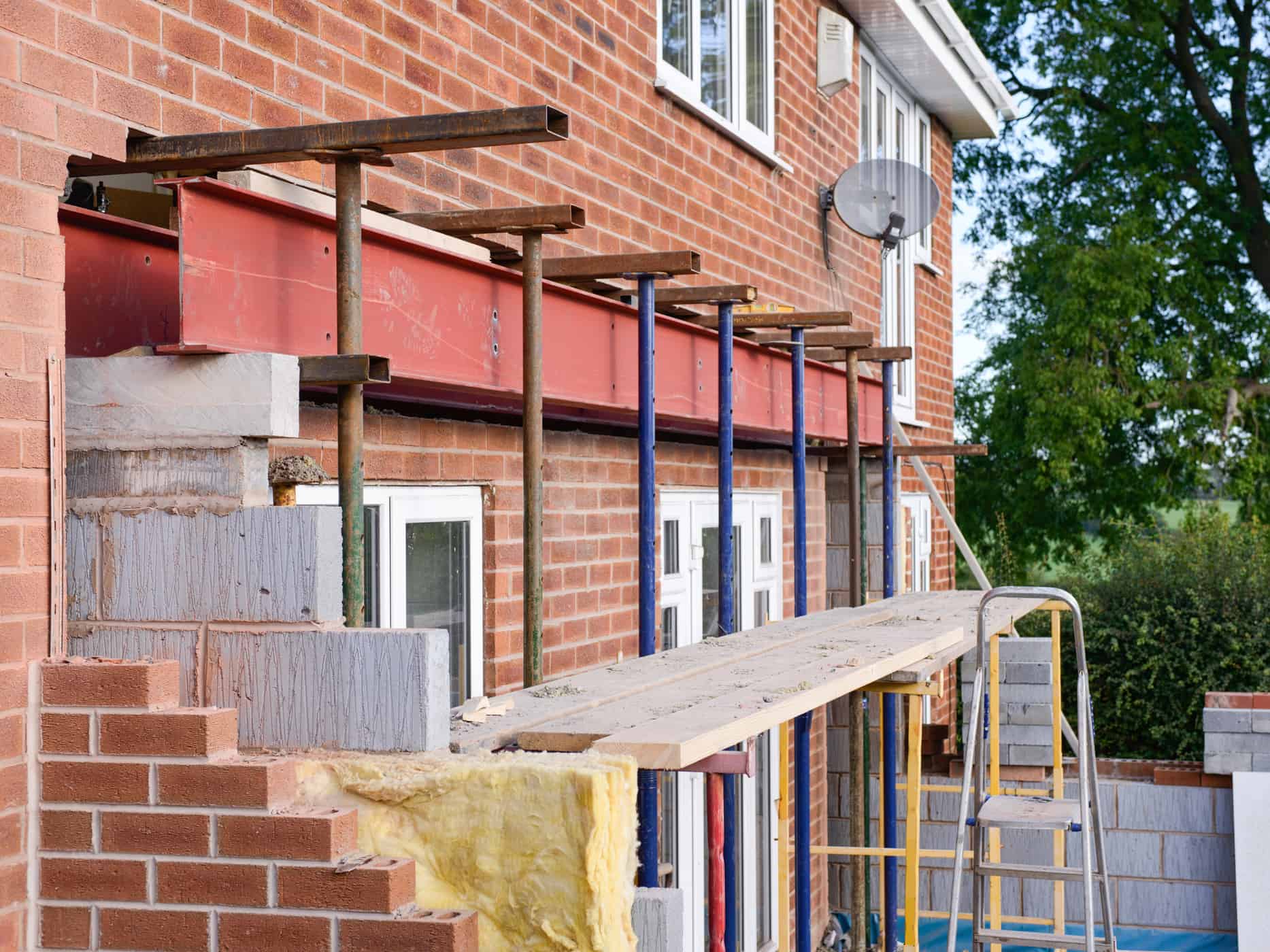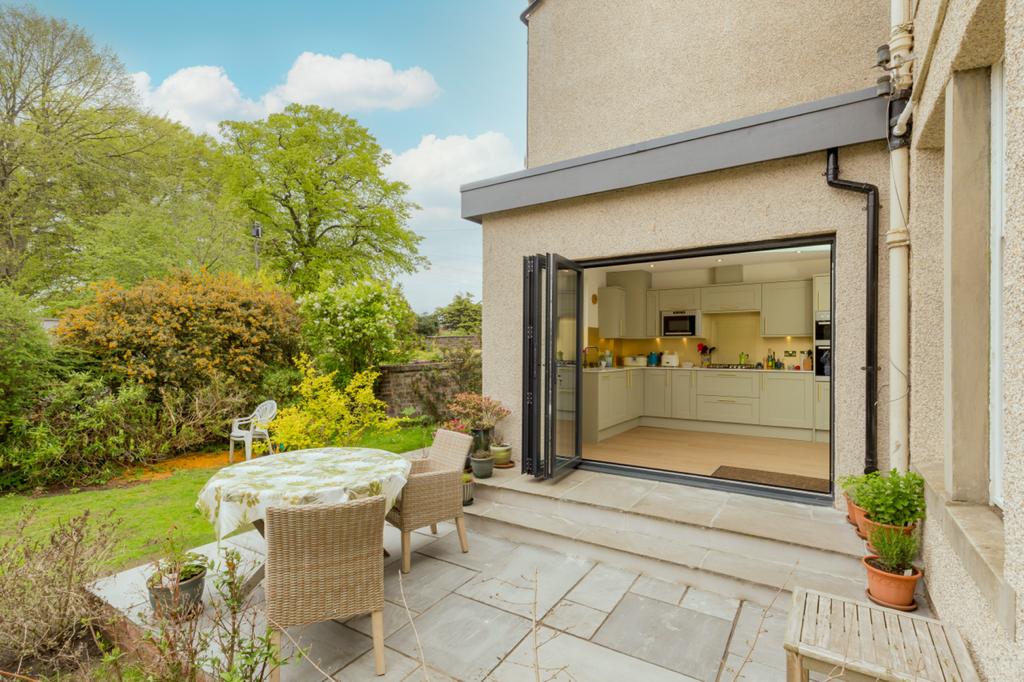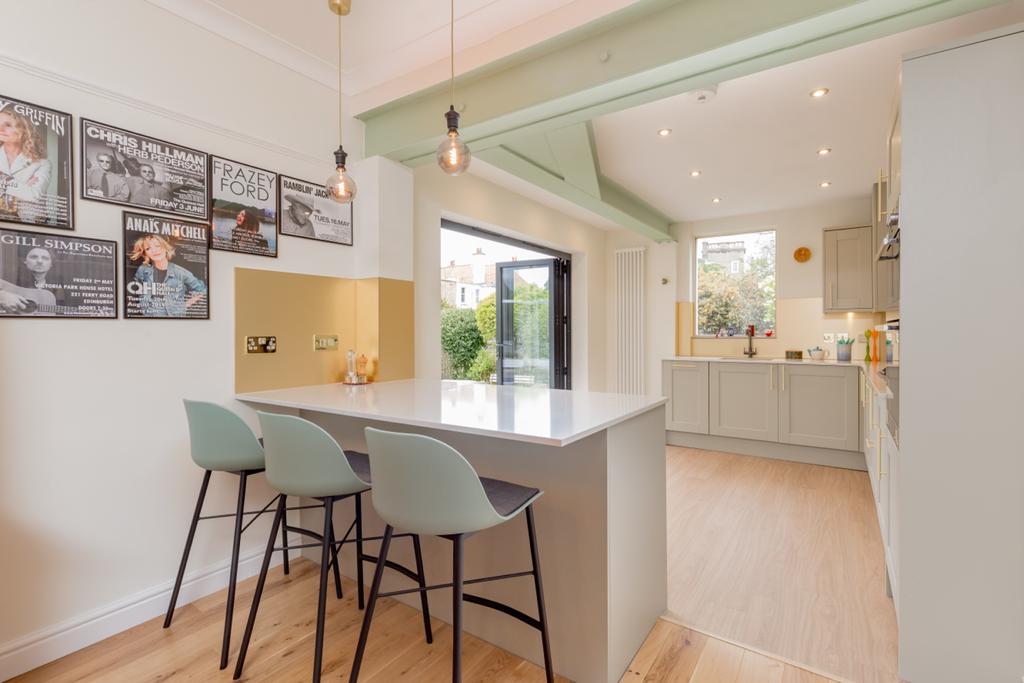How Much Does it Cost to Build a House Extension in Edinburgh?
Are you are thinking about building a house extension in Edinburgh?
If so, you will no doubt want to know the answer to these 4 questions!
- How much does it cost to build a house extension in Edinburgh?
- How do I start the process?
- What Local Authority permission do I require?
- How do I find a builder to build my extension in Edinburgh?
At John Webster Architecture most of our customers have never built a house extension before and don’t have in-depth knowledge of the construction process, but that’s OK that’s what we are here for 😊.
Contact me directly to speak about your Extension project john@jwarch.co.uk
It’s important to find out the answers to these questions BEFORE you start the process. Before you dive straight in and hire an Architect, do your homework. You will want to know as much as possible about the entire process before you are committed to paying for expensive design drawings.
We want to let our customers know how much everything will cost (including the hidden costs) and give them information on all the other ‘stuff’ too. We have produced this guide as an ‘Ultimate guide to building a house extension in Edinburgh’. It will take you from where you are now (the very beginning) all the way through to ‘handing the keys over’.
So, let’s dive in and get started.

Do you and your family love where you live but require a bit more space….Building an Extension could be the Perfect Solution
What is the Cost of Building a house Extension in Edinburgh
How much does it cost to build a house extension in Edinburgh?
On average, a basic single-story extension can cost anywhere from £50,000 to £150,000, while more complex, multi-story extensions can cost upwards of £150,000. It’s important to get quotes from several different contractors to get a more accurate estimate of the cost of your specific project.
It is difficult to provide an estimate of the cost per square meter for building a house extension in Edinburgh, as it can vary widely depending on the factors mentioned above. However, on average, the cost for a basic single-story extension can range from £2,000 to £3,500 per square meter, while the cost for more complex, multi-story extensions can be upwards of £3,000 to £5,000 per square meter. These are rough estimates and it’s important to get quotes from several contractors to get a more accurate estimate for your specific project.
What does £3000.00 per m2 get you?
It will get you a standard finish, generally to match the standard of finish to the existing property. This is based on a standard method of construction. For example, the cost of building a 5m x 5m extension (25m2 extension, say to the kitchen, and assuming it’s not a complex design) will cost £75,000.00 plus VAT
What does it include?
- Painted Plasterboard finish
- Complete with skirting and Door facings
- Doors
- Chipboard or concrete floor
- Light switches and light fittings
- The cost of fitting a kitchen or bathroom
- A completed building ready to move into
What does it not include?
- The cost of purchasing a kitchen or bathrooms
- Finished flooring (carpets, hardwood floor, etc)
- No fancy Coving or plaster cornice
- Timber/Aluminium clad windows or bi-fold doors (these can be 4x the cost of regular windows)
If you wanted to go for a higher-end finish perhaps with a higher ceiling height or high-spec glazing and high-spec fixtures and fittings then this will cost more than £3000.00 per m2, it is likely to cost upwards of £4000.00 per m2
Understanding the cost of a building project before starting is important for several reasons:
- Budgeting: Knowing the estimated cost of the project can help you set a budget and make sure you have enough funds to complete the project. It also allows you to plan for unexpected expenses that may arise during the building process.
- Financing: Knowing the estimated cost of the project can help you determine how much financing you will need to secure, and what type of financing options are available to you.
- Prioritization: Understanding the cost of different elements of the project can help you prioritize which features and finishes are most important to you, and which you may need to compromise on.
- Avoiding surprises: Having a clear understanding of the cost of the project can help you avoid any surprises or unexpected expenses that may arise during the building process.
- Hiring contractors: Knowing the cost of the project can help you compare quotes from different contractors and determine which one is offering the best value for your money.
Overall, understanding the cost of a building project before starting can help ensure that the project is completed on time and within budget, and that you end up with a finished product that meets your expectations.
Contact me directly to speak about your Extension project john@jwarch.co.uk
So, that’s the construction cost but on top of that are costs for:
- Local Authority fees (Planning application and Building Warrant application fees)
- Professional fees (Architect and Structural Engineer fees)
Building a house extension is easy for us…we do it all the time, but for our clients, it might be a once-in-a-lifetime experience so understandably it can seem confusing. We have written this guide as a step-by-step guide to building an extension.

Installing a Metal Beam for Extension
Getting Started
How do I start the process?
There are many different sources of inspiration for a building project, including:
- Home design magazines and websites: Many home design publications and websites feature articles and galleries showcasing the latest trends and styles in home design and renovation.
- Show homes: Many home builders and developers have model homes that are open to the public, which can provide inspiration for your own building project.
- Home renovation shows: Television shows that showcase home renovation projects can provide inspiration for your own building project.
- Social media: Platforms like Pinterest and Instagram are great places to find inspiration for your building project, as users share their own renovation and building projects.
- Home design blogs: Many individuals and companies have blogs dedicated to home design and renovation, which can be a great source of inspiration and ideas.
- Professional designers and architects: They can provide you with a professional insight and help you create your dream space.
It’s important to remember that inspiration should be used as a starting point, and that your building project should be tailored to your specific needs, budget, and local building codes.
Pinterest is a great source of inspiration for a building project, as it is a visual search engine that allows users to browse and save images of home design and renovation projects. You can search for specific terms, such as “kitchen remodel” or “modern home design” to find a variety of ideas and inspiration.
You can also find a lot of inspiration by following boards created by other users, designers, architects and home improvement companies, you can also create your own boards and save the images you like in them.
Additionally, you can use the “Explore” feature on Pinterest to discover new ideas and inspiration for your building project. This feature allows you to browse a variety of different topics, such as “home renovation,” “interior design,” and “outdoor living.”
Keep in mind that even though Pinterest can be a great source of inspiration, it’s important to remember that the images you find may not always be representative of what your final project will look like, and you’ll have to take into consideration the budget and local building codes.
Set a realistic timescale, (it will take a minimum of 6 months to get the necessary permissions to build). Give yourself plenty of time, it’s really important not to rush. Once you have done all of this you are off to a great start, it’s time to start in earnest. Reach out to an Architecture firm that specializes in house extensions or residential architecture. It makes sense as they will be familiar with the latest domestic building regulations and probably be a good contact for sourcing a good builder
This step involves appointing an Architect or Designer to help steer you through the process of building an extension.
At John Webster architecture we specialize in residential architecture for small to medium projects.
Schedule a Conversation Today!
Once you have an Architect or Designer on board and have explained your brief you are off the blocks! It is likely that you will require both Planning permission and a Building warrant for your home extension.
Designing your House Extension in Edinburgh
Before you rush into submitting a Planning application there is the small matter of designing your extension😊
At John Webster Architecture we take our time and do this in conjunction with you the customer. We have taken the time to study the brief and understand what your main priorities are (as well as a good understanding of the budget)
You want to start with the budget and design a house extension that is in line with this, not the other way around (design something amazing and hope for the best that it comes in on budget). This is the single biggest reason projects fail to get off the ground. Once you have worked through the design and you have a scheme that you are happy with the next step is to submit a Planning application
Side note:
At John Webster architecture we understand the process is an evolution (our first go is rarely if ever the final result). We continue to bat the drawings back and forth (with no limit) to develop the design keeping the client fully involved, after all, it’s your house!
Contact me directly to speak about your Extension project john@jwarch.co.uk

Kitchen Extension
Planning Permission
Do I need Planning permission to build a house extension in Edinburgh?
You can read our comprehensive article on building warrants and planning permission here
In Edinburgh, as with most places in the UK, you will likely need planning permission to build a house extension. However, it depends on the specifics of the extension and the property. For example, if the extension is small and not visible from the street, it may be considered permitted development and not require planning permission. Additionally, certain conservation areas or listed buildings may have stricter regulations. It’s best to check with your local planning authority to determine if your proposed extension will require planning permission.
You can read all about permitted development here.
If a development is permitted development then you can apply for ‘Certificate of Lawfulness’
A Certificate of Lawfulness is a document issued by a local planning authority that confirms that a specific use or development of land or property is in compliance with planning laws and regulations. It confirms that the use or development has been carried out in accordance with the Town and Country Planning Act 1990, and that it does not require planning permission.
The certificate is typically requested when an individual or organization wants to confirm that a specific use or development of land or property is lawful, for example, if they want to sell or mortgage the property, or if they want to use it for a specific purpose.
It’s important to note that a certificate of lawfulness doesn’t confirm that the use or development is compliant with all other laws and regulations, such as building regulations.
It’s important to check with the local planning authority to determine if the specific use or development of land or property is covered under the permitted development rights, if not, an application for a certificate of lawfulness for the existing use and development must be made.
At John Webster architecture we always suggest to our clients to go with either option below:
- Submit a Planning application, this costs £300.00. if the house extension does not require planning approval the fee will be returned with a letter stating that in the council’s view the development falls under permitted development.
- Submit a ‘certificate of lawfulness’ application, this costs £150.00. This type of application is generally submitted if it is felt that the development falls under permitted development.
You can apply for a certificate of lawfulness here
These 2 options future-proof you….when you come to sell your house there will be no doubt that the development is lawful
You have demonstrated that you followed procedure and can prove that the development is Lawful, doing nothing is not an option we consider at John Webster Architecture, even if a development falls under permitted development, you will be asked (at the point of sale) for evidence of this. Trust us, it’s a major pain in the backside trying to get this retrospectively and we have seen house sales falling apart because of this.
Contact me directly to speak to me about your Extension project john@jwarch.co.uk
Once the Planning application is submitted to the City of Edinburgh Council planning department, it will be assessed by the Planners and a decision is usually determined within 8 weeks. A certificate of Lawfulness application also takes around 8 weeks to determine. These timescales are targets that are set by the Scottish government.
If you would like to read more about the Planning system and understand the basis that Planning officers make their decisions you can read about it here:
Once Planning has been secured you can safely move on to the next stage. If you are in a real hurry and are prepared to take a small risk (the risk being that Planning is not granted) then you can move to the next stage while the planning application is being determined.
The next stage is a Building warrant application.
Building warrant
Do I need a Building warrant to build an extension to my house in Edinburgh?
In Edinburgh, as in most places in the UK, you will need to obtain a building warrant before beginning construction on a house extension. A building warrant is a legal permission issued by the local authority, which allows you to carry out building work on a property. It ensures that the proposed work meets the relevant building regulations and standards, such as fire safety, structural integrity, and energy efficiency.
The process for obtaining a building warrant typically includes the following steps:
- Submit detailed plans and specifications for the proposed work to the City of Edinburgh Council.
- Pay the relevant fee
- The plans will be reviewed by an Building Standards Officer to ensure that they comply with the relevant building regulations.
- Once the plans are approved, a building warrant will be issued, and construction can begin.
It’s important to note that building warrant application process can take several weeks or even months, so it’s important to plan ahead and allow enough time for the application process to be completed before starting the construction work.
Can I start work on my extension before the building warrant is approved?
No,
Starting work on a building project before a building warrant has been granted can lead to a number of problems, including:
- Legal penalties and fines: Carrying out work without a building warrant is a violation of building regulations, and can result in legal penalties and fines.
- Additional costs: If the work that has been carried out does not meet building regulations, it may need to be altered or even demolished, which can result in additional costs.
- Delays: If work is started before a building warrant has been granted, it may need to be halted until the building warrant is obtained, which can cause delays in the completion of the project.
- Safety risks: Building regulations are in place to ensure that all construction work is safe, structurally sound, and energy efficient. By starting work before a building warrant is approved, you risk carrying out work that does not meet these regulations, which can put the safety of the users of the building at risk.
- Difficulty selling or renting the property: If a property has been extended or modified without the appropriate building warrants and approvals, it may be difficult to sell or rent the property in the future.
- Insurance issues: Without the appropriate building warrant, insurance companies may not cover damages caused by works that have not been approved by the local authority.
It’s important to note that starting work before a building warrant is granted is not only illegal but also can cause significant problems for the building owner and user, and it is always recommended to check with the local authority before starting any works to ensure that you are in compliance with all the regulations and laws, and to avoid any potential penalties or fines.
At John Webster Architecture we submit a Building warrant application for your home extension to the City of Edinburgh Council (Building standards department).
Contact me directly to speak to me about your Extension project john@jwarch.co.uk
In 2023 this is done digitally
You can read in much more detail about Planning applications and Building warrant applications here
Your Building warrant will be assessed for compliance against current building regulations, this is normally carried out within 20 working days (1 month), if the application fails to meet the regulations or if further information is requested then the Building standards officer will write to your Architect to inform them.
Your Architect will then revise the drawings and specifications and resubmit the application, this process will continue until the Building Standards officer is satisfied the application complies with the regulations. This is a perfectly normal procedure and is nothing to worry about.
You can click here to read the current Building standards
Be warned it’s a hefty document and may be quite a tedious read😊
Building warrant fees are payable by you (the client) directly to the Council and are set by the Scottish government, these fees are directly related to the cost of the building works.
Find out how much your building warrant fee might be here
So, once the APPROVED Building warrant has been issued you are legally free to start building, excellent! The next move will be to find a builder to build your house extension in Edinburgh.

How do I find a builder to build my extension in Edinburgh?
Finding a great builder in Edinburgh can be a daunting task, but with a little research, you can find a reliable and experienced contractor who will complete your project to a high standard. Here are a few tips to help you find a great builder:
- Ask for recommendations: Ask friends, family, and colleagues if they have had any good experiences with builders in Edinburgh. Personal recommendations are often a good way to find a reputable builder.
- Check for qualifications and accreditation: Look for builders who are members of professional organizations such as the Federation of Master Builders (FMB) or the National House Building Council (NHBC). These organizations have strict criteria for membership and provide a guarantee on their members’ work.
- Check reviews and ratings: Look for online reviews and ratings of builders in Edinburgh.
- Get multiple quotes: Contact several builders and ask them to provide a quote for the work you need. Compare the quotes to find a builder who offers a fair price for the work you need.
- Look for experience: Look for builders with a proven track record of completing similar projects to the one you have in mind. Look at their portfolio of work and ask to see examples of similar projects they have completed.
- Check their insurance: Make sure the builder you choose has the appropriate insurance, such as public liability and employers’ liability insurance. This will protect you in case something goes wrong during the building process.
- Communicate clearly: Make sure you understand the building process, timelines and the cost implication, and that the builder understands your expectations.
- Have a clear contract: Have a clear and detailed contract outlining the scope of the work, timelines, and payment schedule. This will help to protect you and ensure that the work is completed to a high standard.
It’s always a good idea to gather as much information as possible about the builders you’re interested in and take your time to make a decision. Remember that finding a great builder takes time, but it’s worth it to ensure that your building project is completed to a high standard.
In conclusion, building a house extension in Edinburgh can be a challenging but rewarding process.
It’s important to research and understand the regulations and requirements for obtaining planning permission and building warrants, as well as the steps for finding a great builder.
By following the tips outlined in this article, you can increase your chances of finding a reputable and experienced builder who will complete your project to a high standard.
Remember that finding a great builder takes time, but it’s worth it to ensure that your building project is completed to a high standard. Additionally, always communicate clearly with your builder, have a clear contract outlining the scope of the work, timelines, and payment schedule, and ensure that the builder has the appropriate insurance coverage.
With the right builder and the right approach, you can turn your house extension dream into a reality.

